Late August brings us into the dog days of summer, and there’s nothing that cures a dog day like a dose of drama. That’s why I reserved this month for BLACK! (And thanks to a little summer travel, I’m just getting in under the August wire.)
Of course, no plant leaf or flower is completely black. Inspected closely, there is always green (for photosynthesis) or dark red, purple or deep bronze underlying the apparent dark floral pigments. But there’s a rich roster of plants that can be called upon to inject a little black magic into the garden, whether it’s with dark-as-night foliage or betwitchingly black blossoms. And for my money, no one offers up the design potential of black like Vancouver’s Van Dusen Botanical Garden. Here’s their black and gold border, with barberries, colocasias, sedums, eucomis and black mondo grass, to name just a few. Isn’t it lovely? And doesn’t that dark foliage look spectacular paired with chartreuse?
Here’s a closer look at a portion of Van Dusen’s wonderful border, with a black taro, ‘Black Tropicanna’ (or perhaps ‘Australia) canna and ‘Brunette’ snakeroot (Actaea racemosa ‘Brunette’).
Mondo grass (Ophiopogon planiscapus ‘Nigrescens’) is one of the darkest ‘black’ leafed plants, and one of the most dramatic for pairing with bright colours. I love the way Victoria’s Horticulture Centre of the Pacific uses it in combination with Sedum ruprestre ‘Angelina’, seen below in spring when it’s still gold.
Here’s how it looks at HCP with golden oregano (Origanum vulgare ‘Aureum’).
At gorgeous Chanticleer Gardens in Wayne, Pennsylvania, the Japanese Garden employs Japanese black mondo grass as a dark edging under bamboo ‘fencing’.
Other dark, grass-like plants include fountain grass, particularly Pennisetum ‘Princess Caroline’ and ‘Vertigo’, below, shown with orange zinnias at New York’s Conservatory Garden in Central Park.
And here is Pennisetum ‘Princess Caroline’ doubling down on black with the ornamental pepper Capsicum annuum ‘Black Pearl’, a fabulous black annual.
Black and red look spectacular together, too, as demonstrated by Capsicum annuum ‘Black Pearl’ paired with annual red Salvia splendens.
The best spring bulb for injecting a little early-season black is Tulipa ‘Queen of Night’. I love this one, and use it liberally in my own spring garden. Here it is at Toronto’s Casa Loma bringing depth to citrus colours….
…. and at Toronto’s Spadina House as a pretty partner to pink….
…. and echoing the dark foliage of ‘Diabolo’ ninebark (Physocarpus opulifolius) at the Toronto Botanical Garden.
Shortly after the tulip season comes columbine season, and there’s nothing more dramatic than a black, pleated form of Aquilegia vulgaris.
One of my favourite dark-leafed shrubs is Black Lace elderberry (Sambucus nigra ‘Eva’), seen below with a pink Phlox paniculata at Northwest Garden Nursery in Eugene, Oregon.
For some reason, annual sweet potato vine (Ipomoea batatas) lends itself genetically to black colouration. Here is ‘Ace of Spades’ with yellow rieger begonias in Toronto gardener Shari Ezyk’s lovely urn.
And adding a dark carpet to sea oats (Chasmanthium latifolium) at the Conservatory Garden, in New York.
This is the fancy-leafed ‘Blackie’, with ‘Lemon Gem’ marigolds at Toronto Botanical.
Another species that has benefited ‘darkly’ from plant breeding is tropical taro or elephant ears (Colocasia esculenta). Here we see the big leaves of ‘Royal Hawaiian Black Coral’ exploding with a canna lily out of a sea of chartreuse foliage at Montreal Botanical Garden.
Black taros are also used beautifully with other tropicals at Nancy Goodwin’s Montrose Garden in Hillsborough, North Carolina.
There are some good black petunias, including yellow-striped ‘Phantom’.
Sometimes we forget that seedheads can have visual impact in a late-season garden, especially when they’re as dark as Rudbeckia maxima, shown in front of Calamagrostis acutiflora at Wave Hill in the Bronx.
Purple coneflower has dark seedheads, too. Here it is behind the golden fall foliage of Amsonia tabernaemontana in autumn.
And don’t forget the zingy seedhead possibilities of blackeyed susans!
We can also add black with furnishings, of course. Here’s a modern black steel fence I fell in love with at the Corning Museum of Glass in upstate New York.
And this black-stained garden arch is the height of design sophistication (as are black fences).
Black chairs? What about using some black stain and artistic flourish to turn a Muskoka (Adirondack) chair into a work of art, as my artist son Jon Davis did for me many years ago.
Even a simple black bistro chair can up the dark drama quotient, especially if it’s in renowned garden guru Tom Hobb’s former Vancouver garden.
In the black accessories department, you can’t go wrong with a simple black obelisk, especially when it chums with a pink daylily.
Moving to containers, black adds a dollop of sophistication via this beautiful trio of planters at Toronto Botanical Garden. No other colour would work as well with the flamenco-red flowers and foliage, all designed by horticulturist Paul Zammit.
I’ve written about Paul’s creative container designs before, but he does have a special skill for knowing just what to use, like these kitchen herbs (parsley, sage), grasses (carex, hakonechloa) and orange calibrachoas in a run of basic black iron window boxes.
I’ll finish my contemplation of black in the garden with containers from my favourite public garden, Chanticleer. Here’s a lovely black urn that repeats the black-red theme of some of the photos above, with red calibrachoa. Stunning, isn’t it?
And finally, a half-dozen statuesque black planters that are as much about defining space in this Chanticleer garden, as they are containing plants.

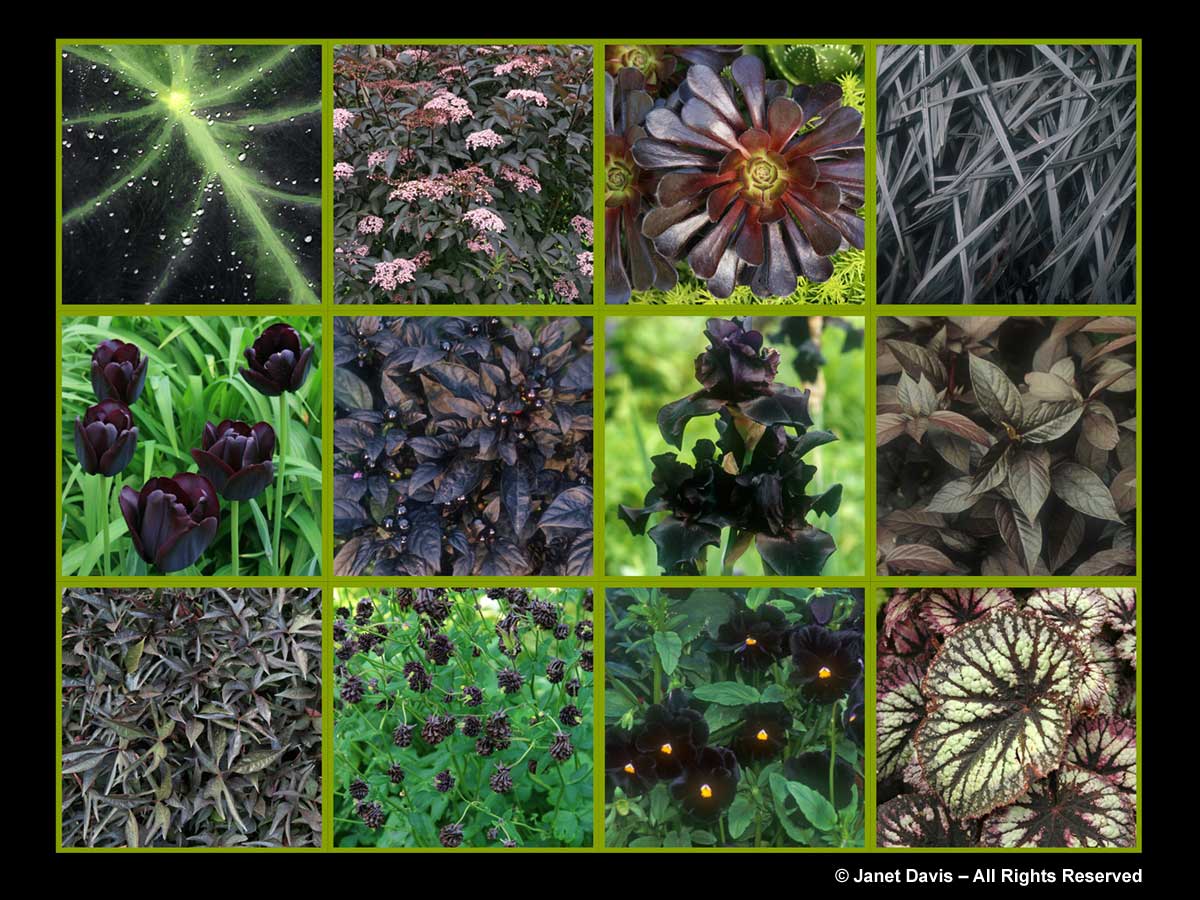
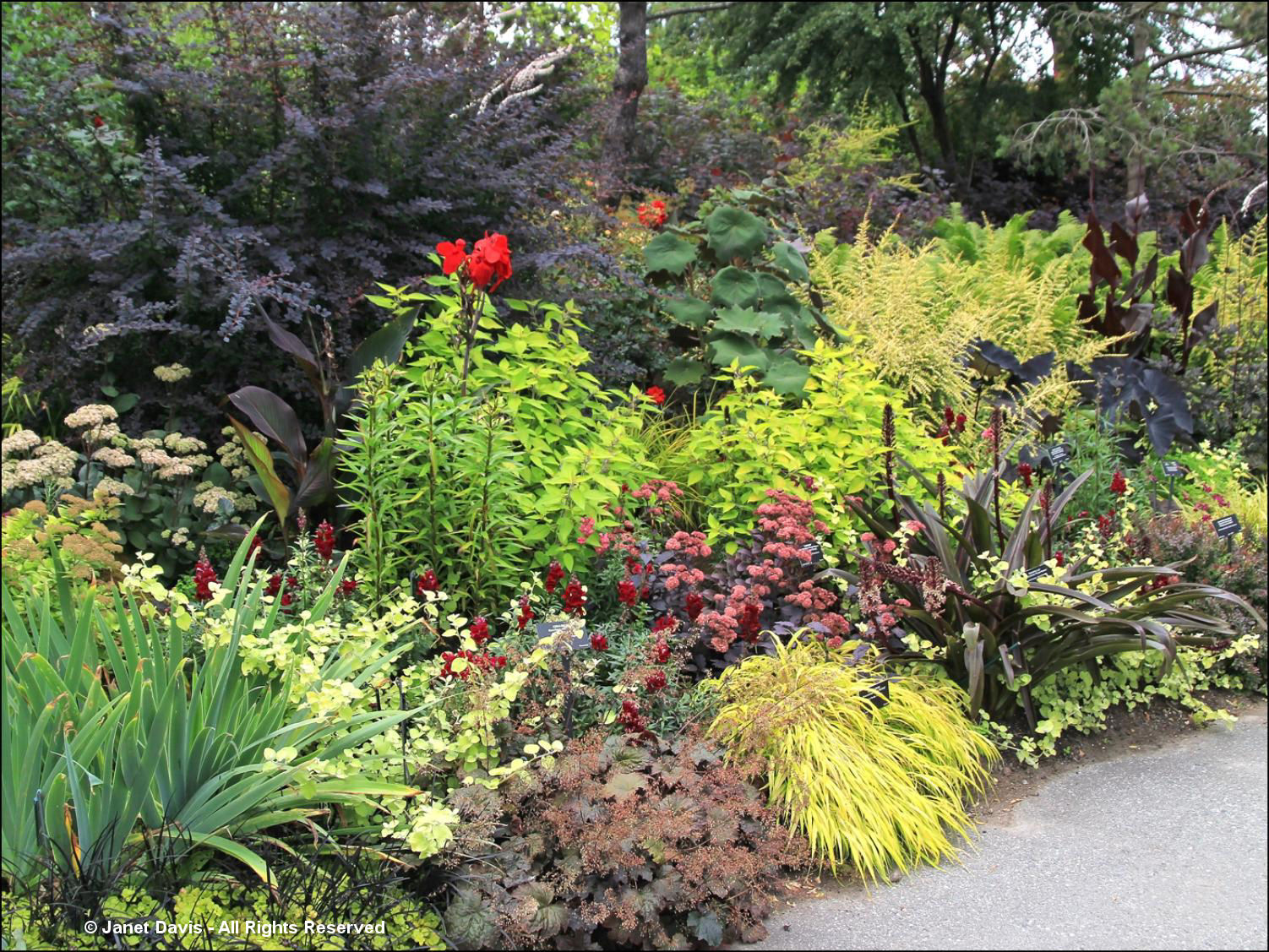
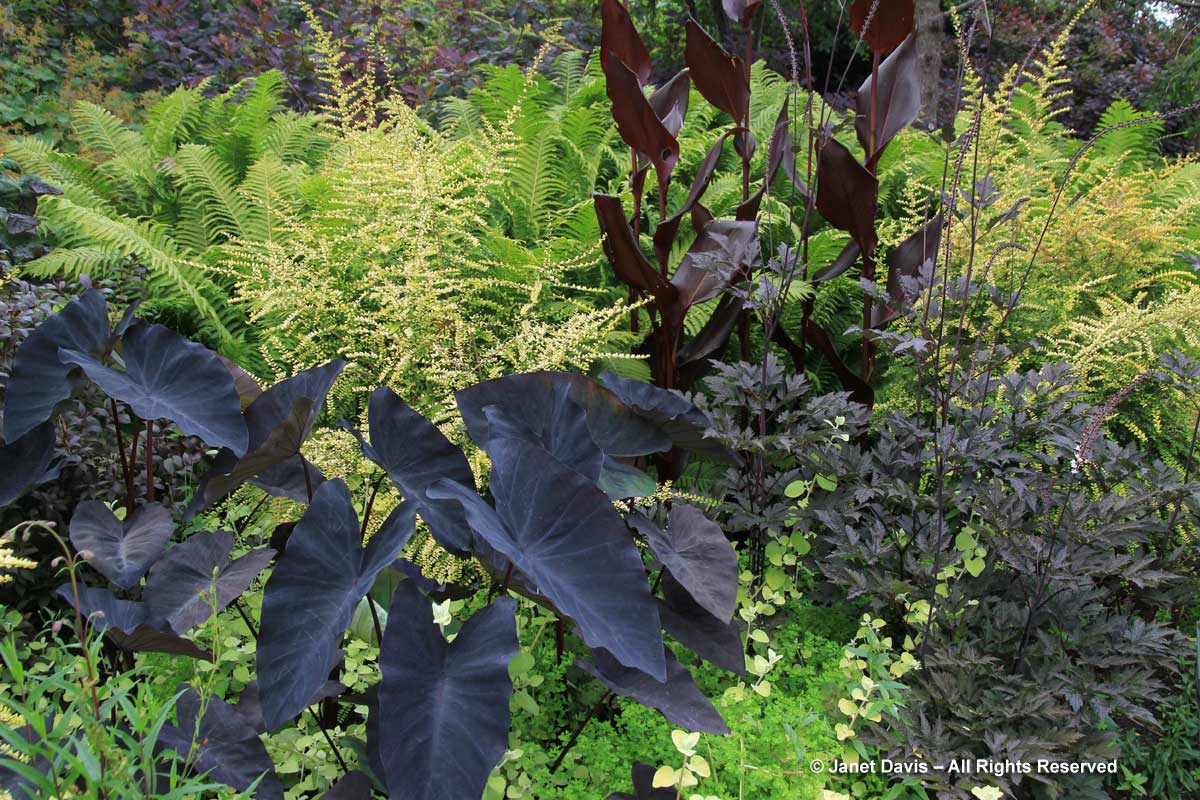
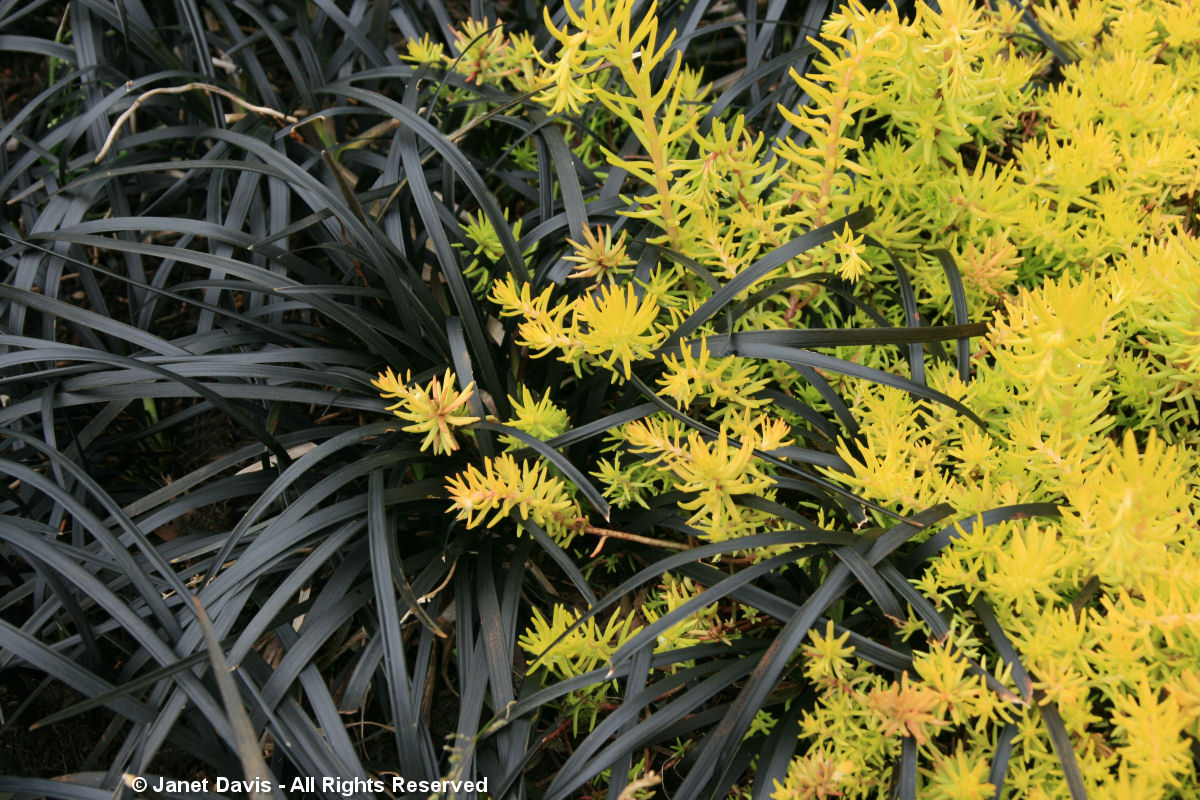
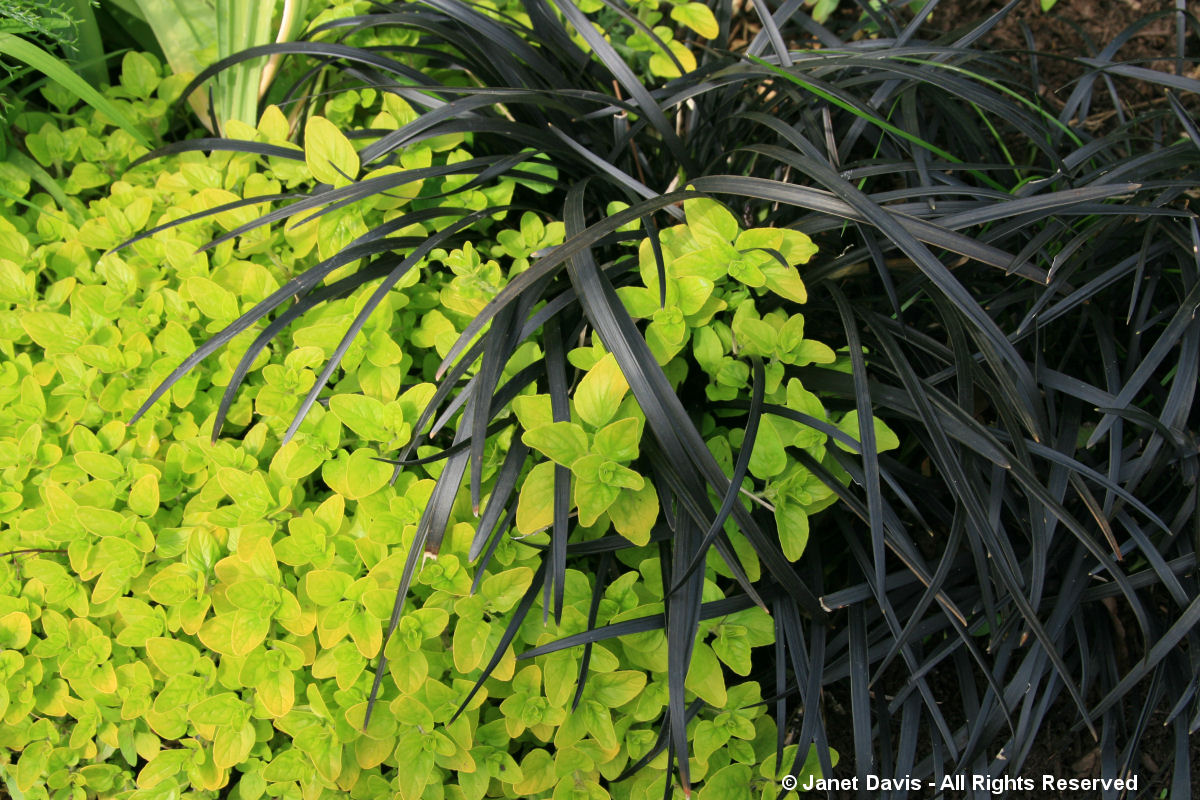
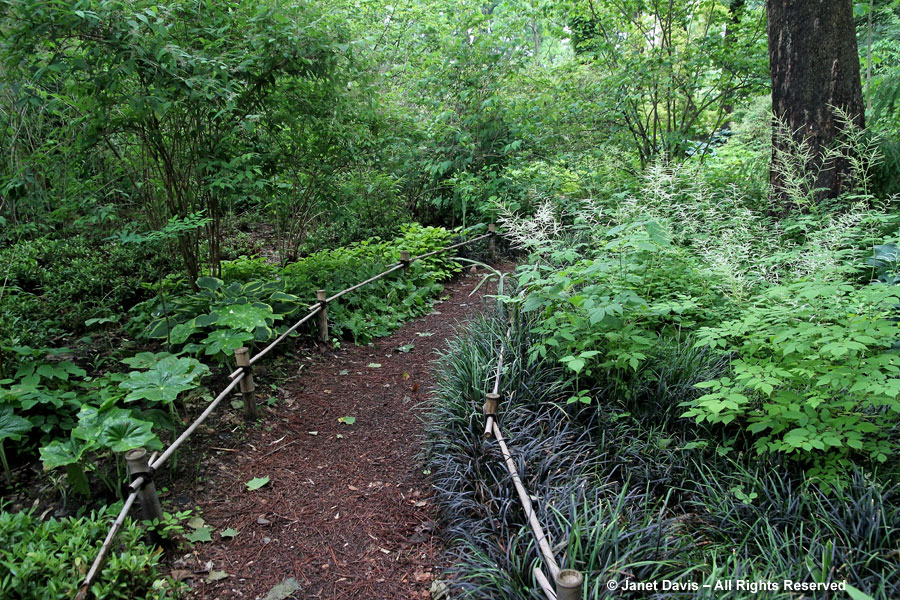
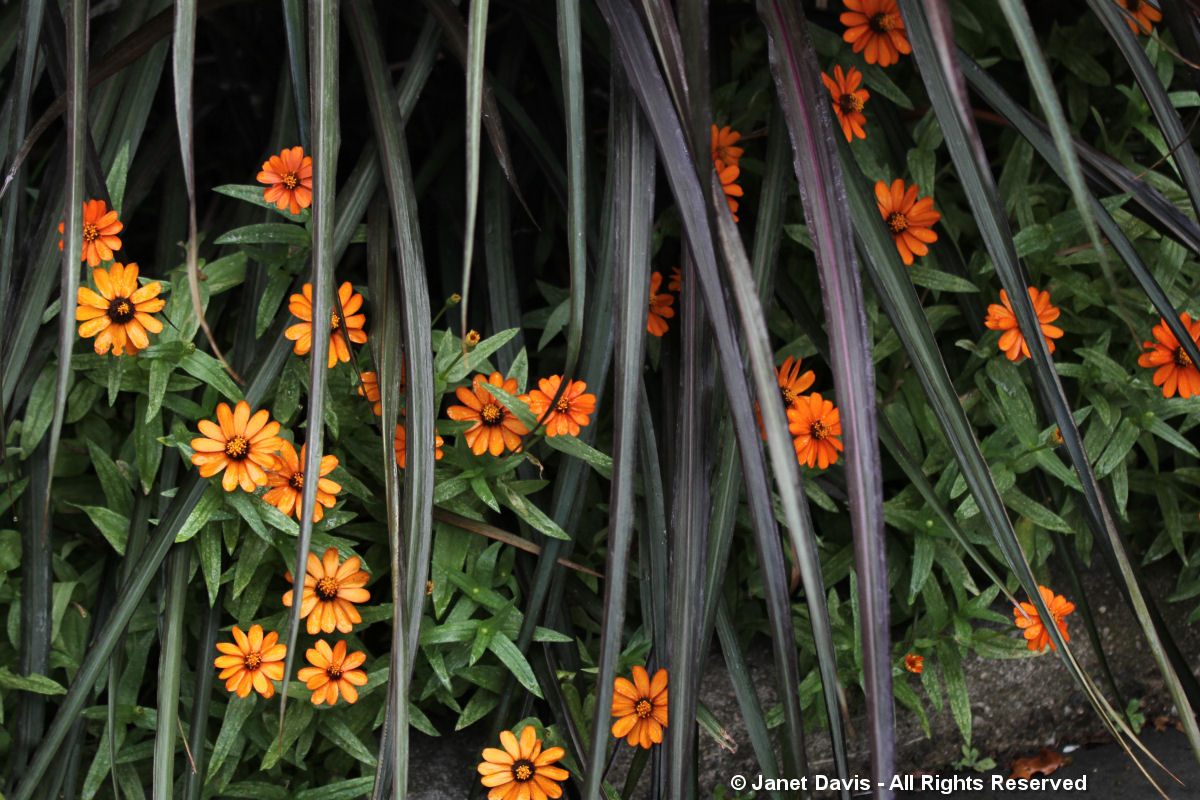
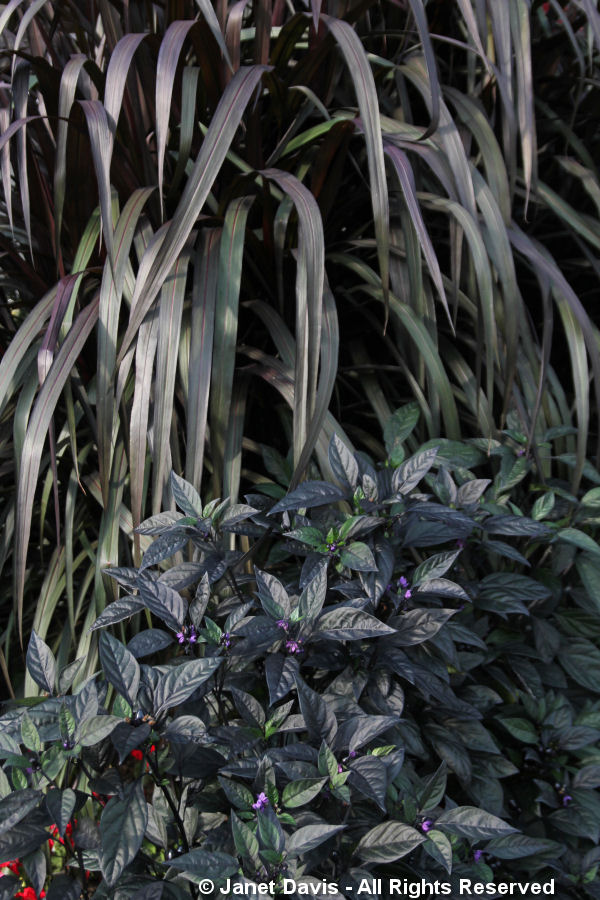
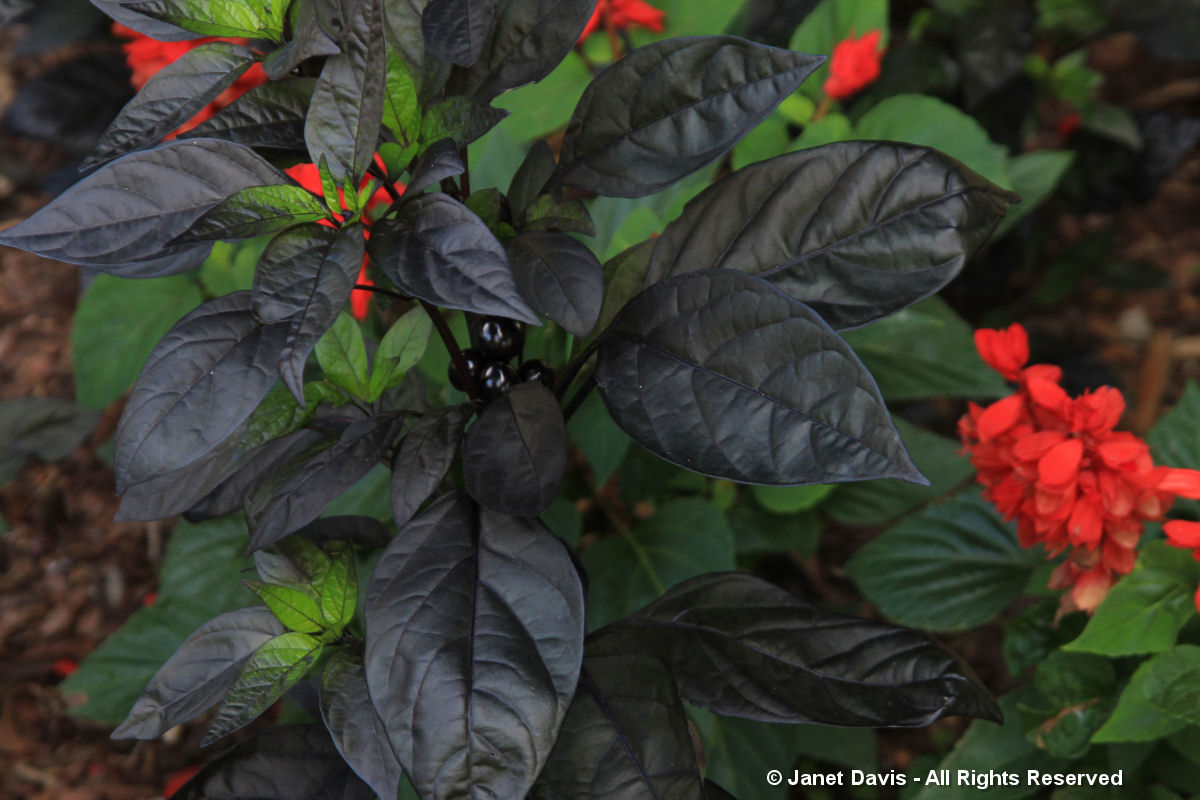
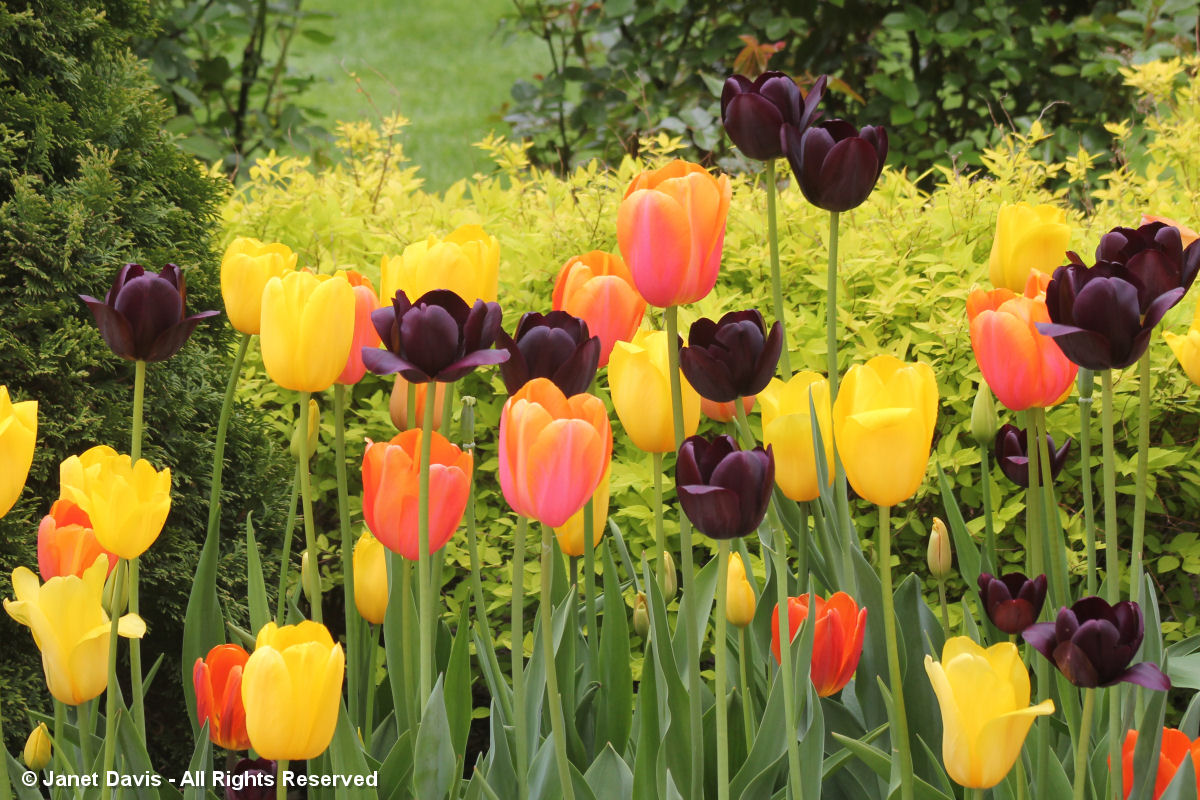
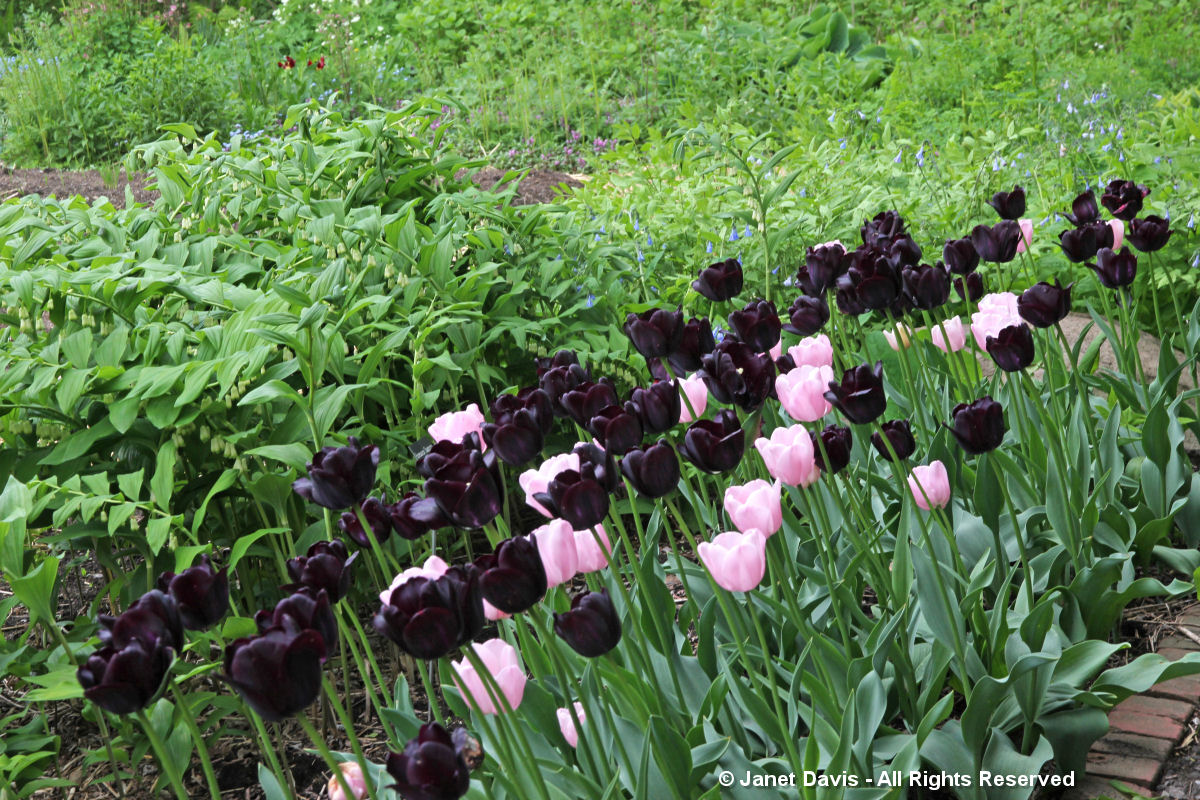
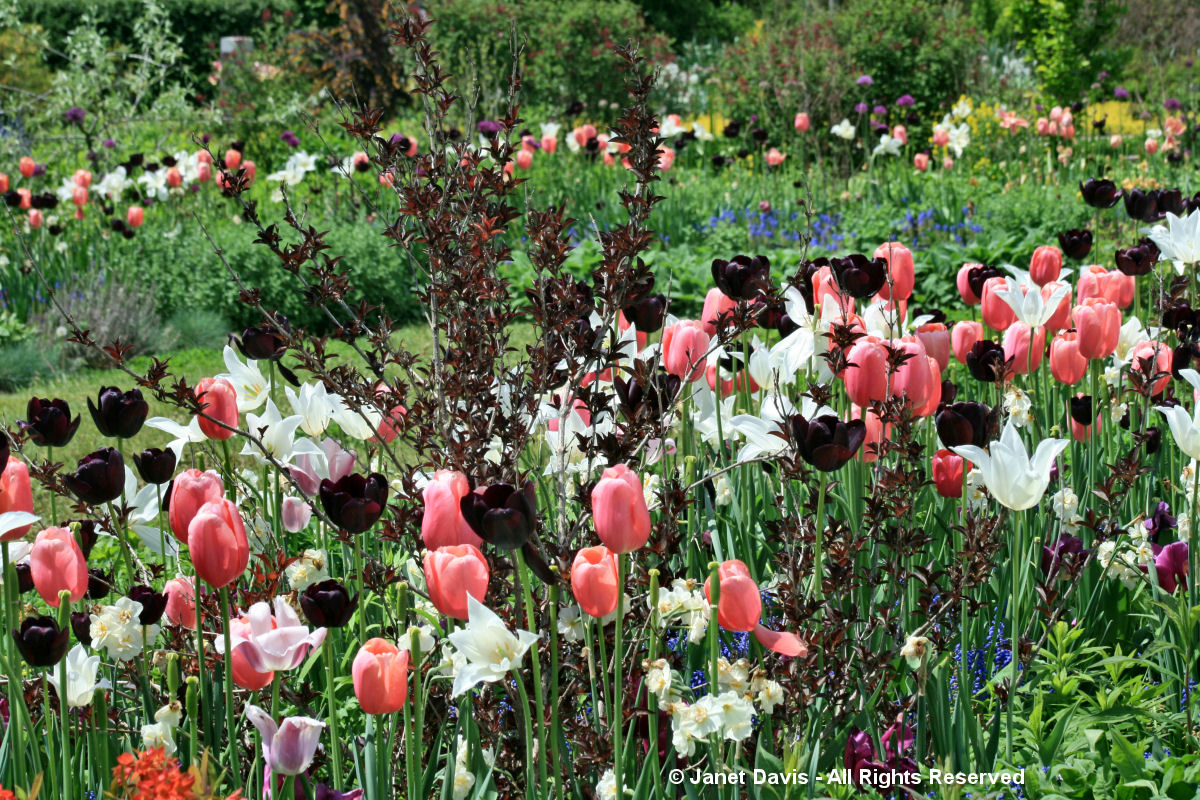
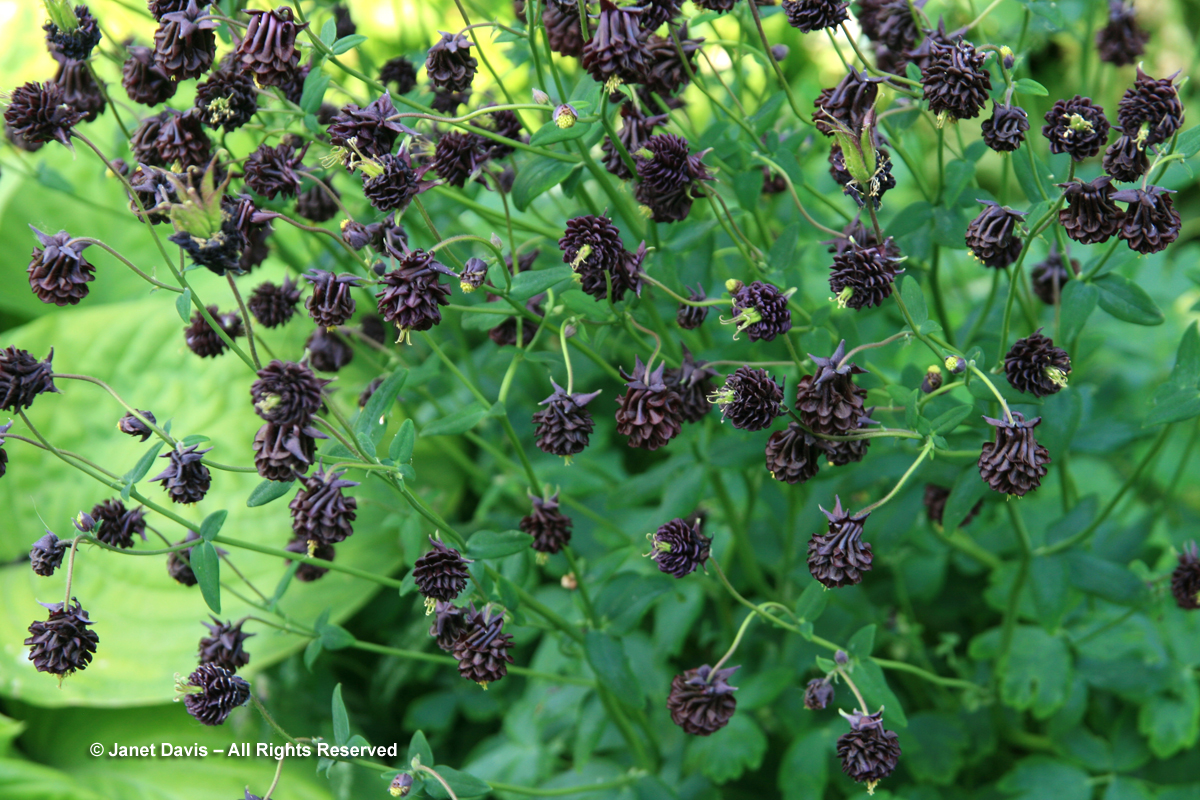
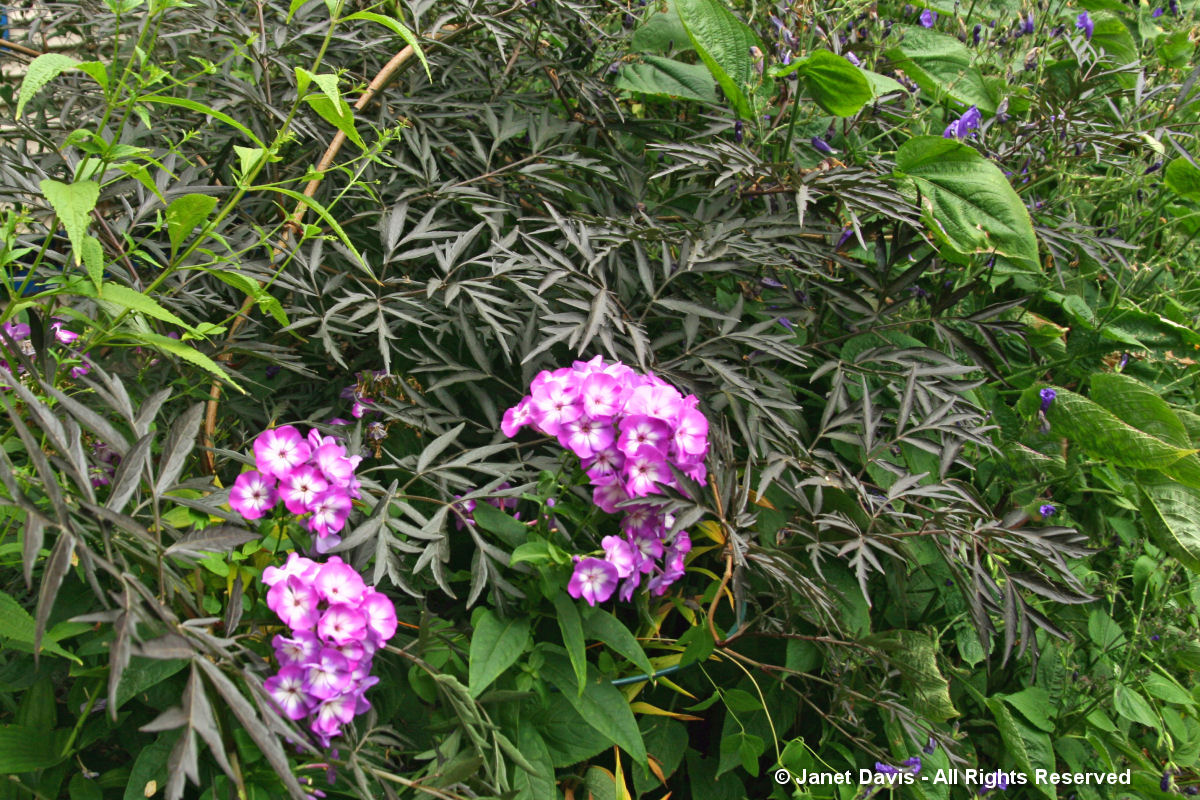
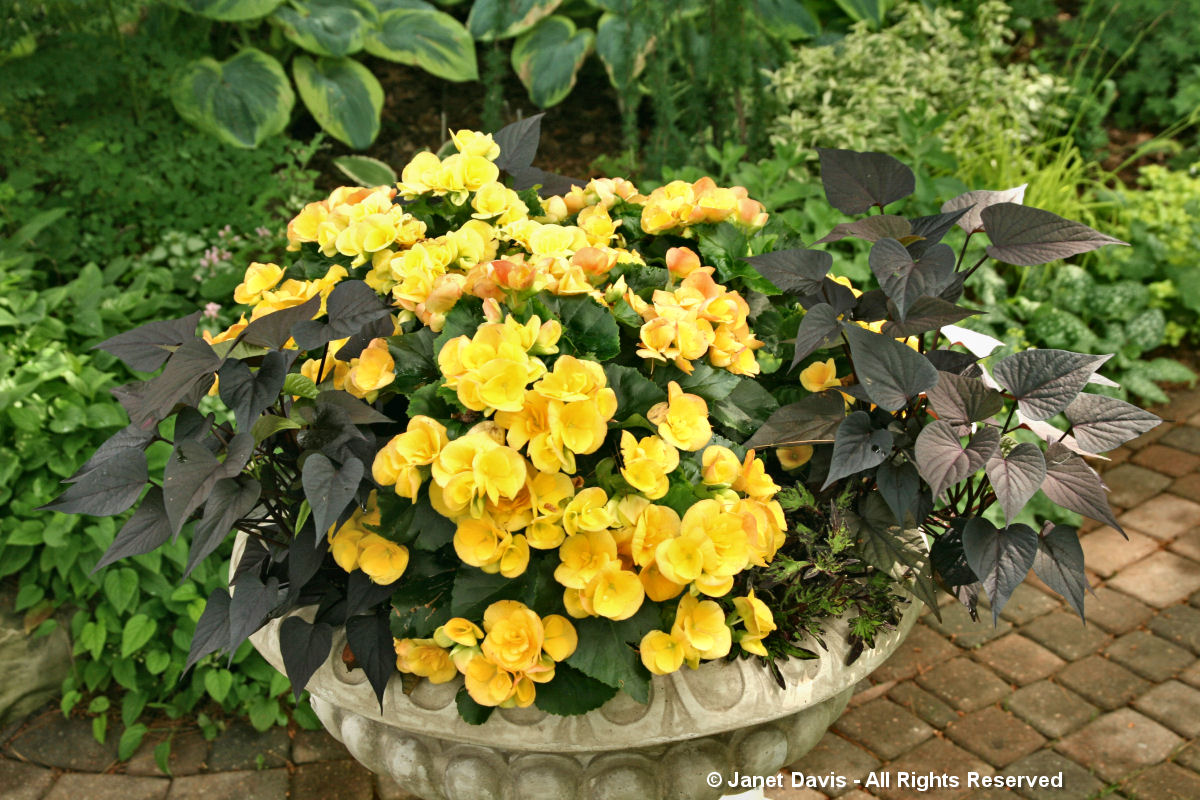
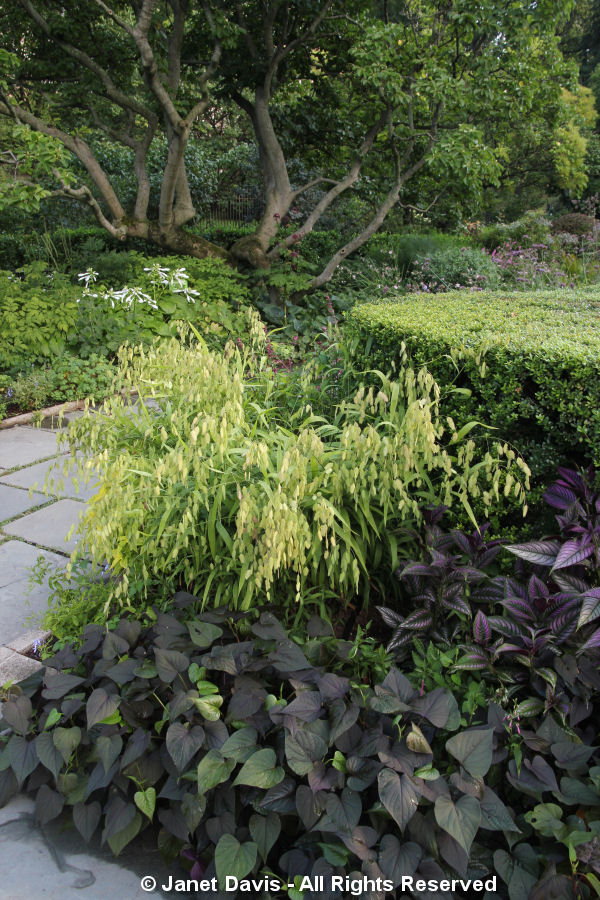
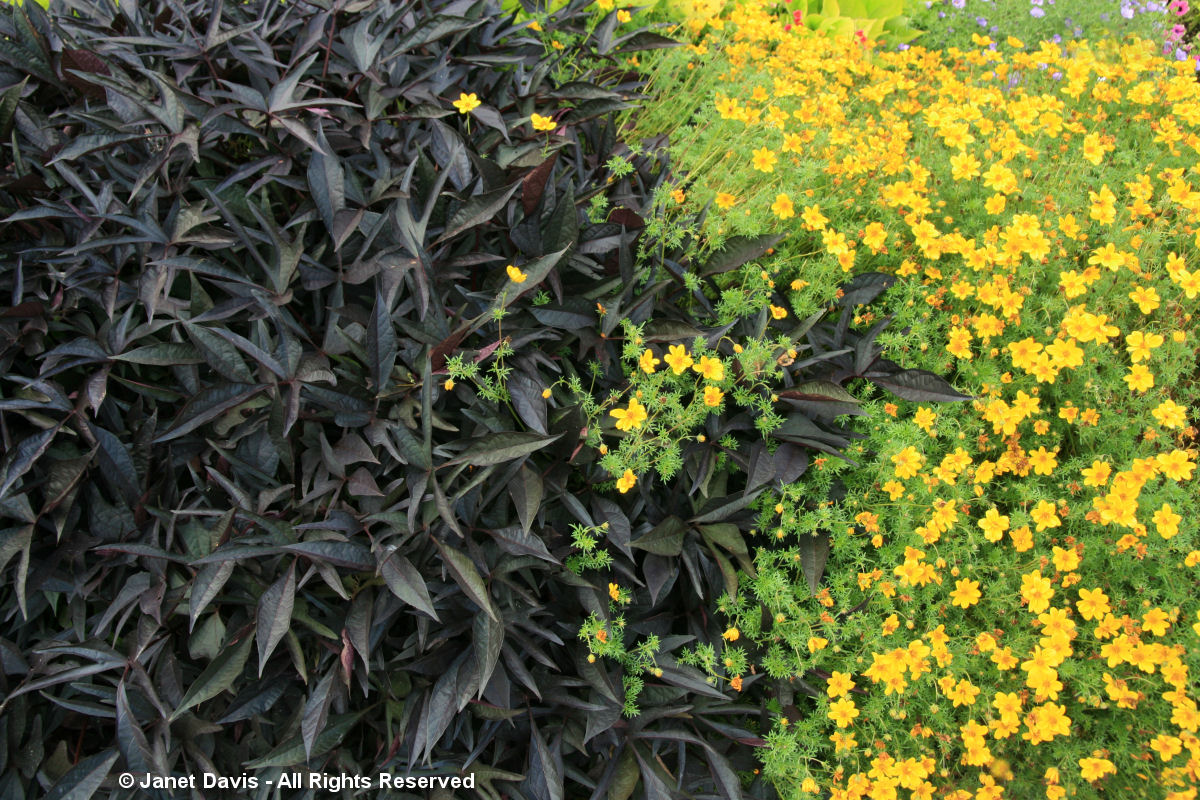
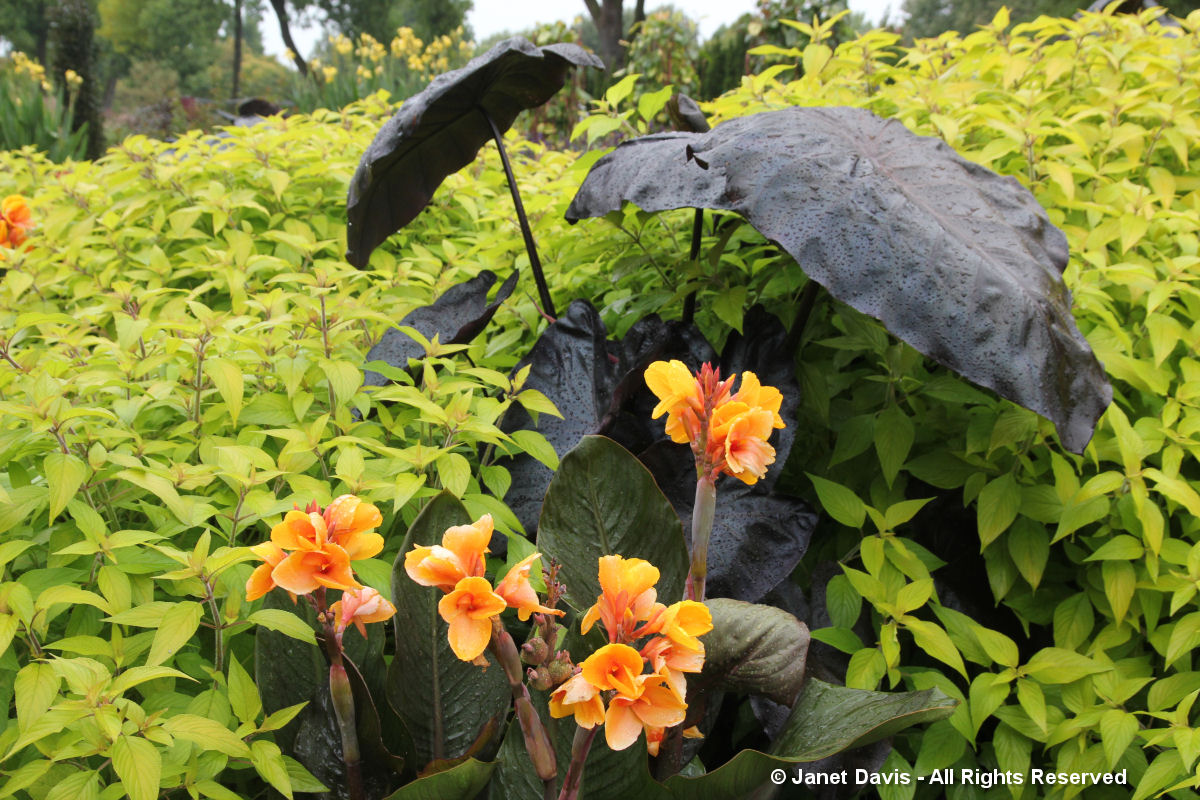
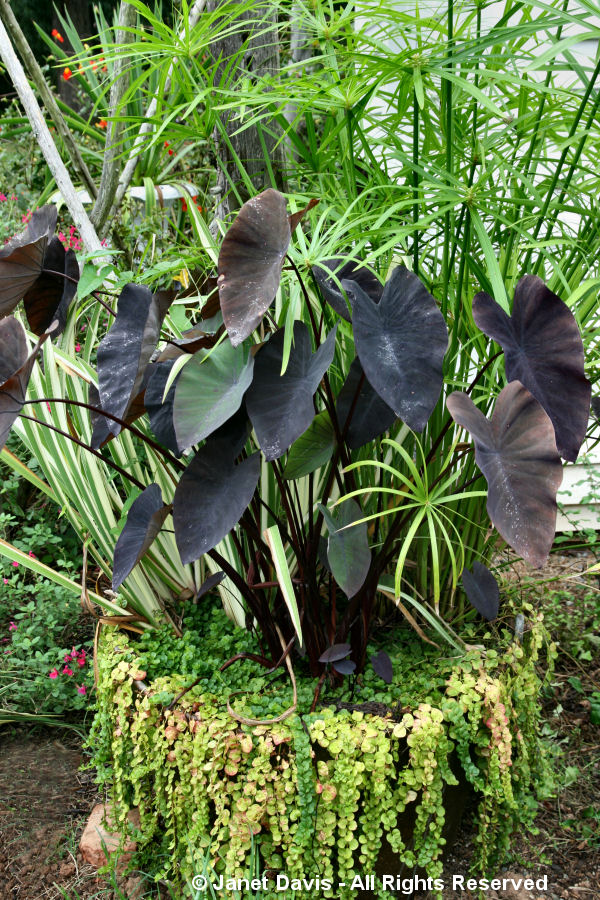
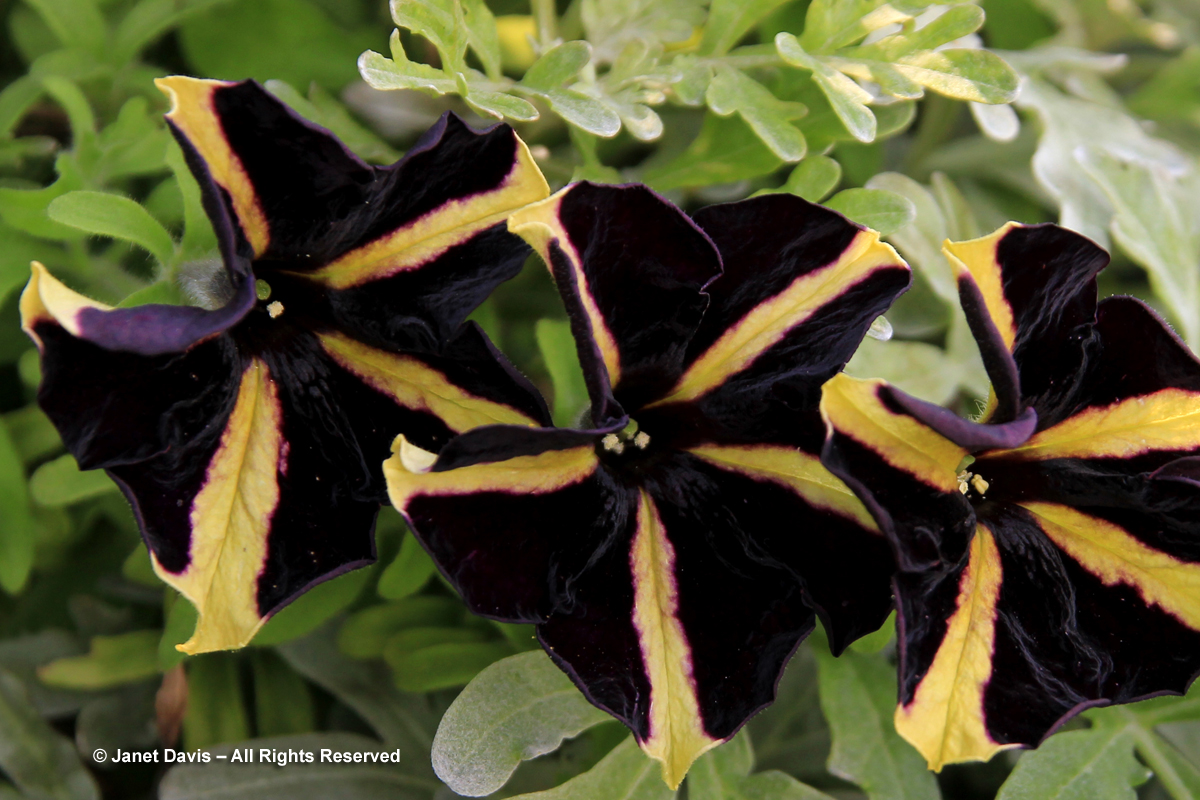
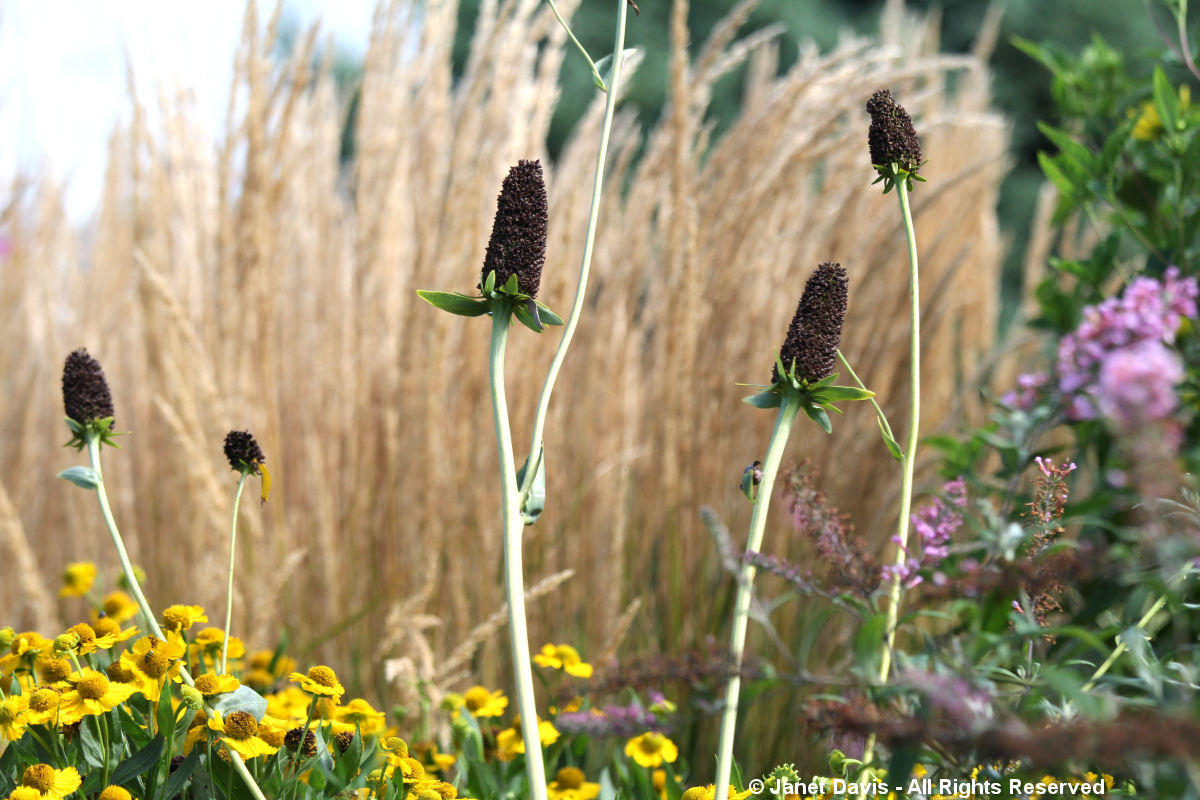
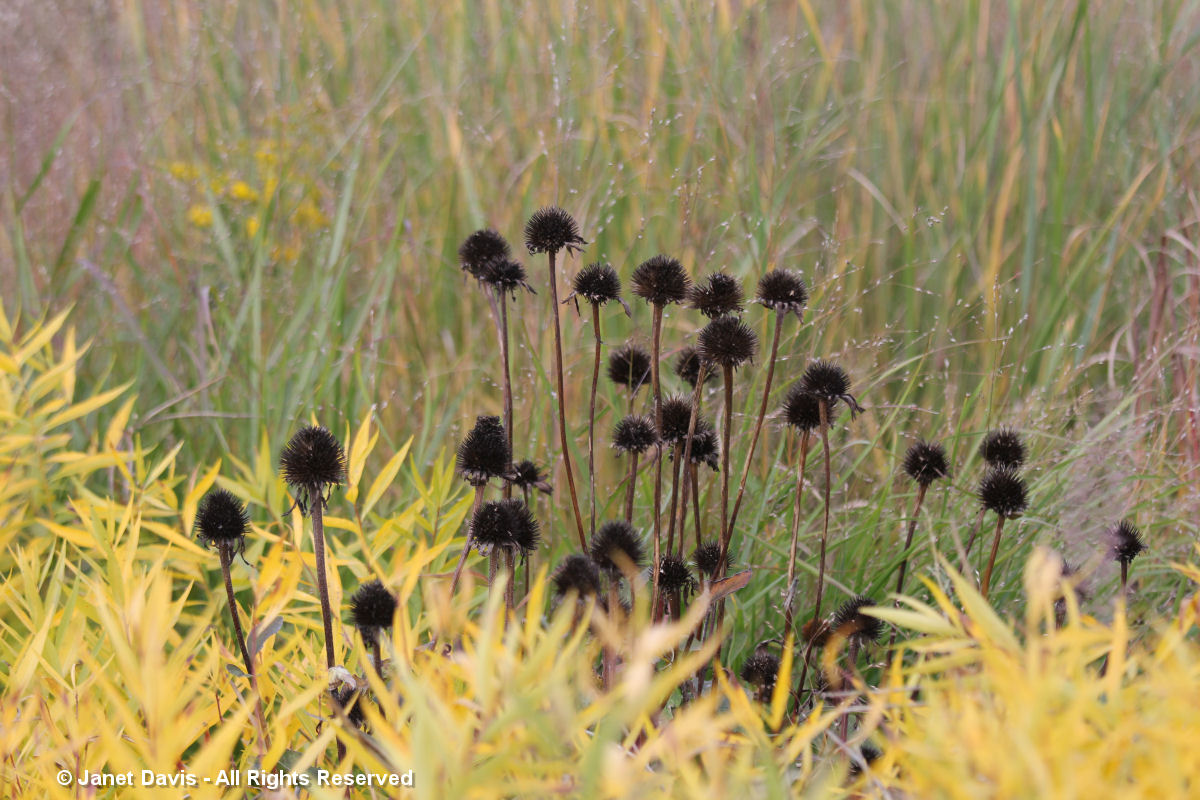
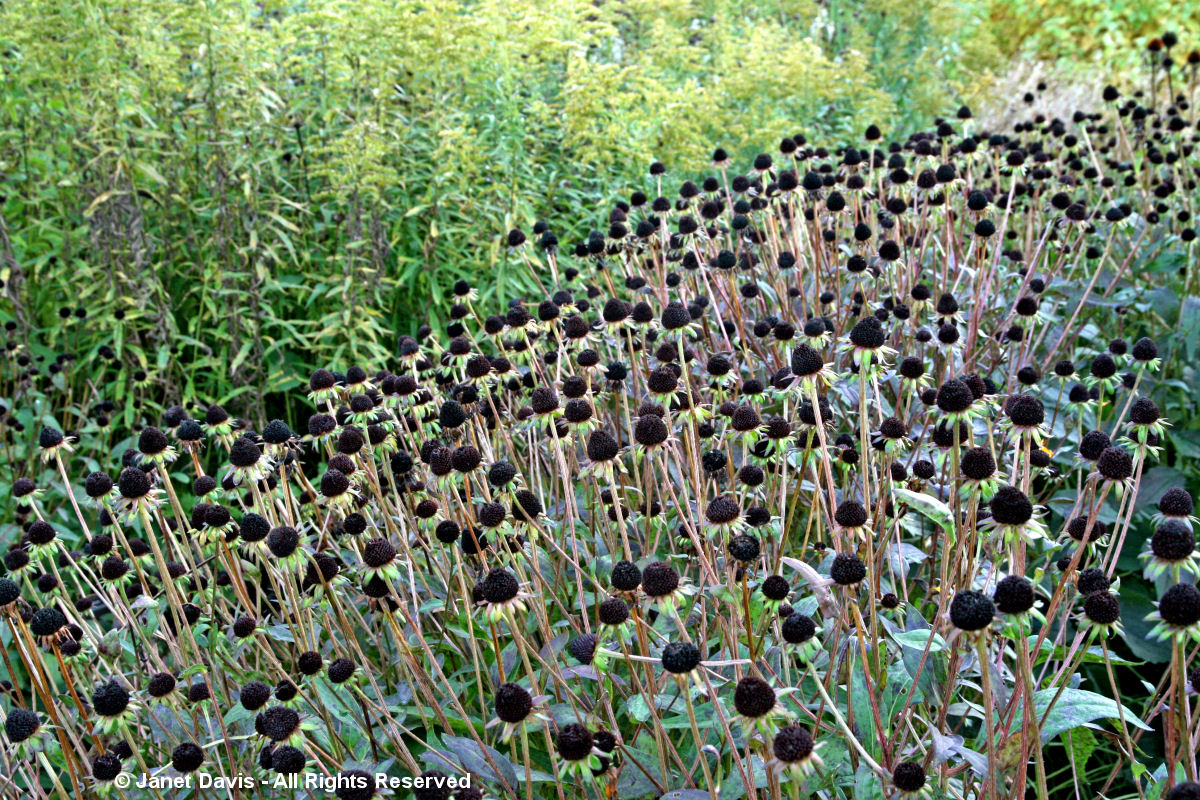
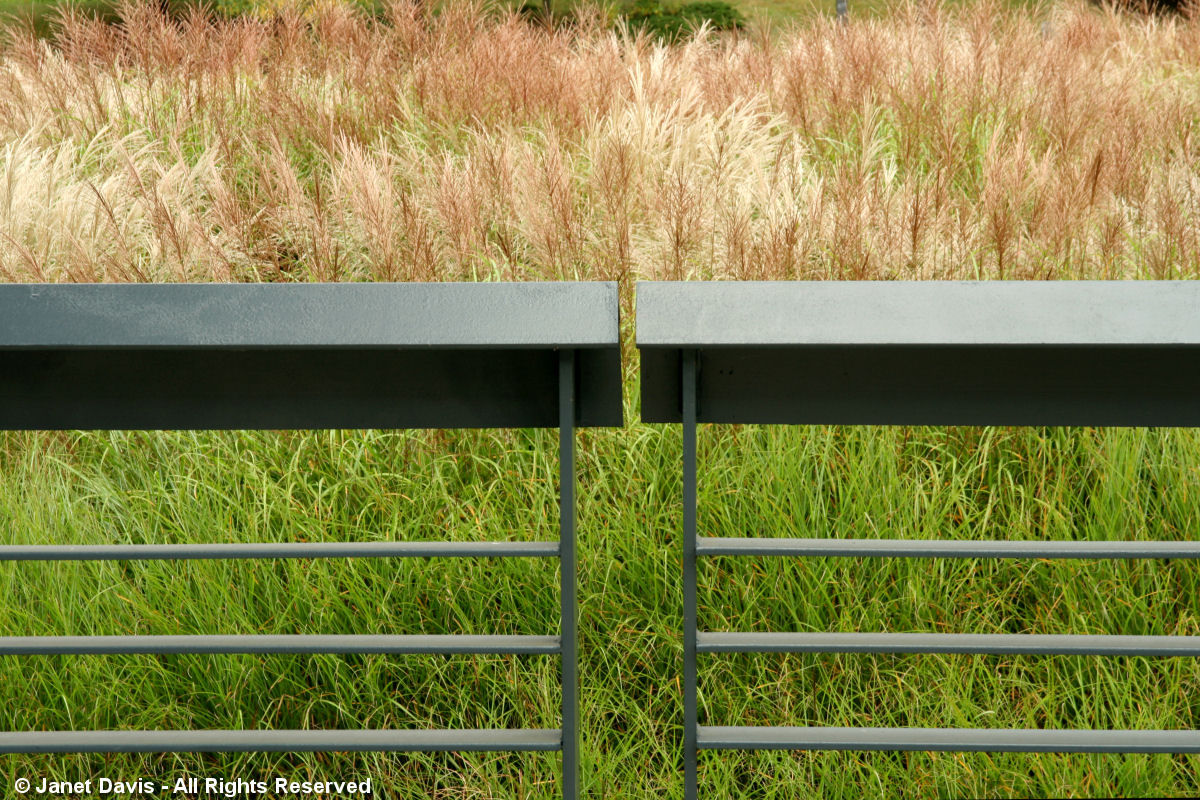
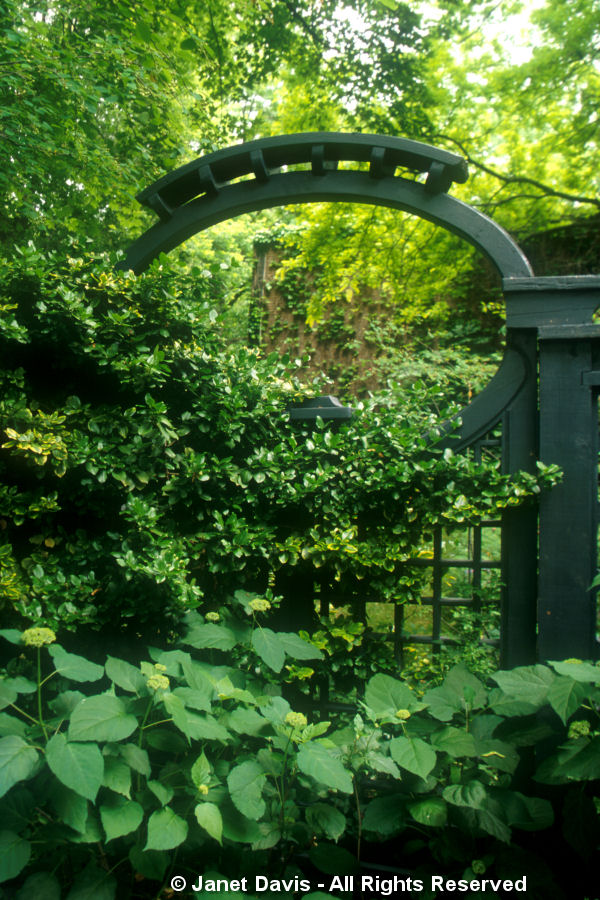
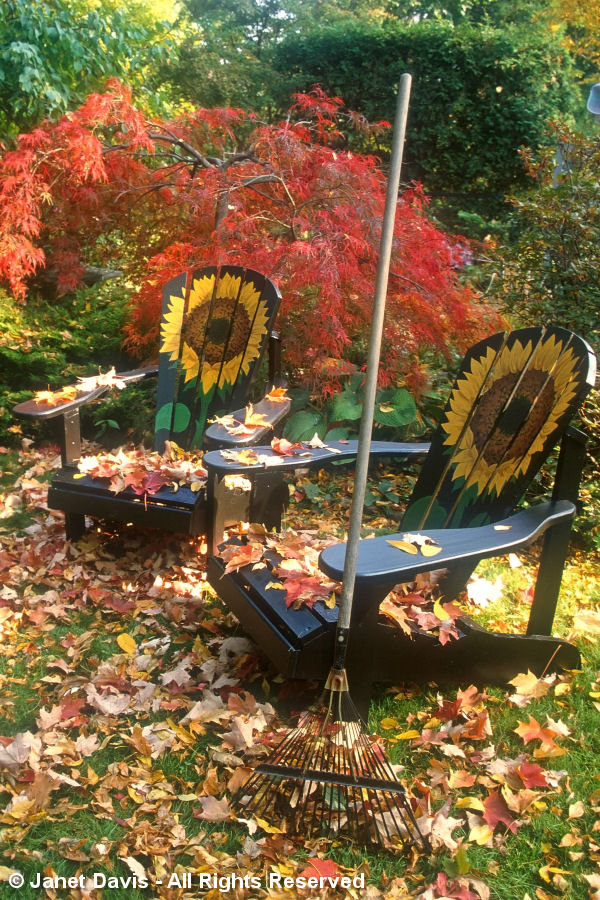
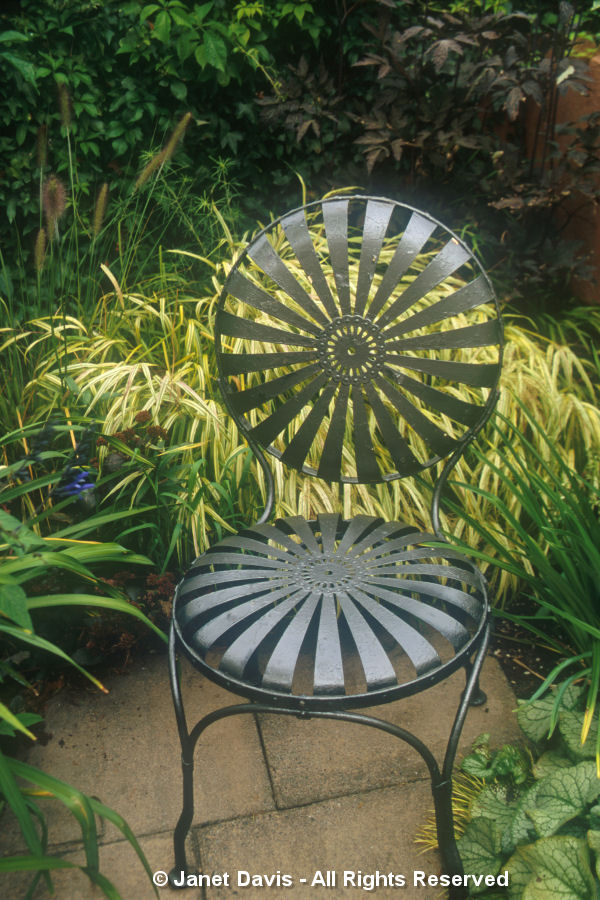
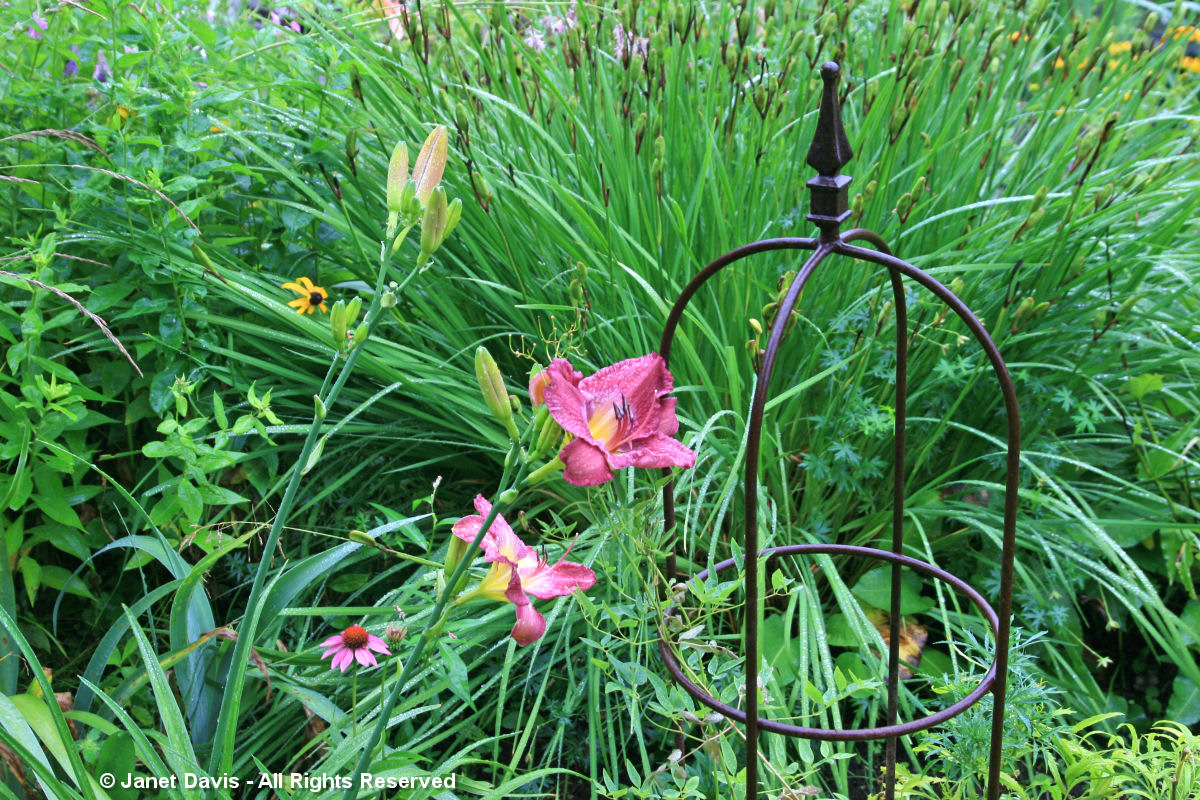
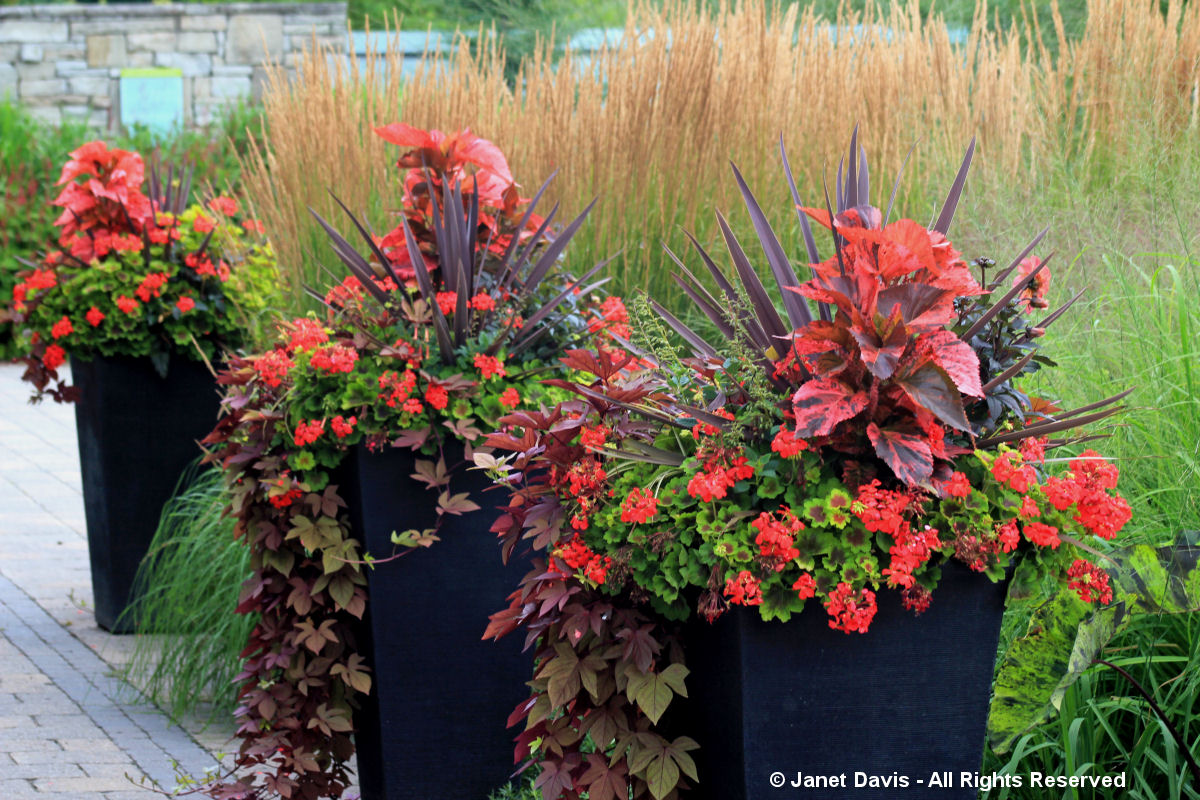
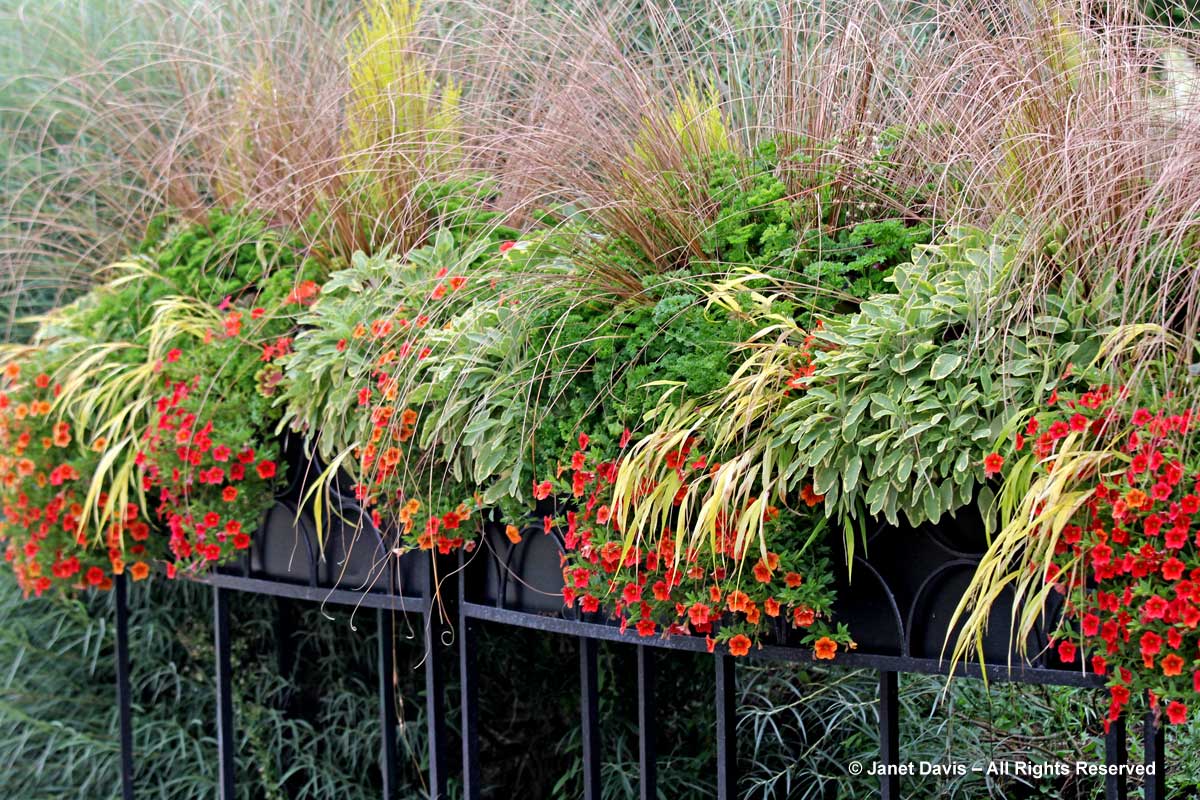
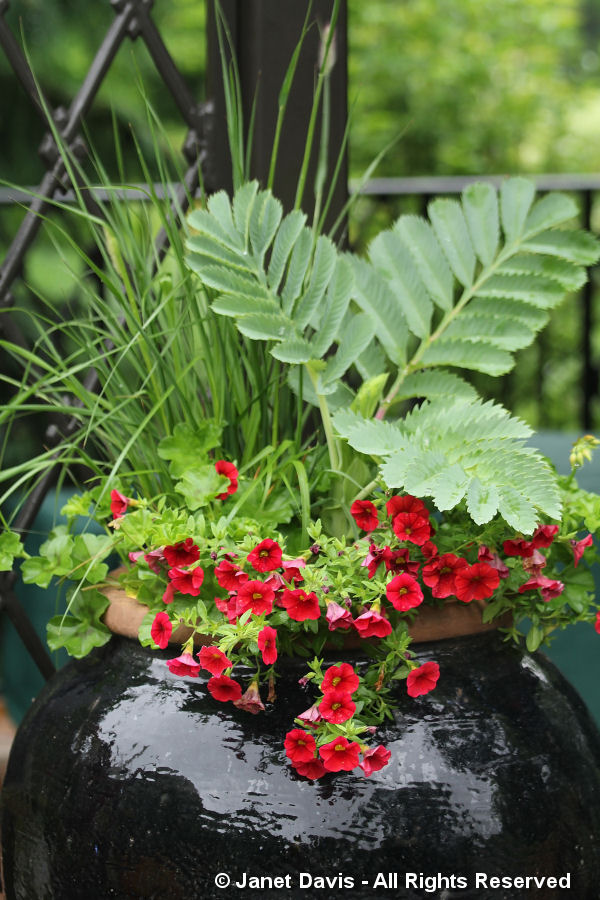
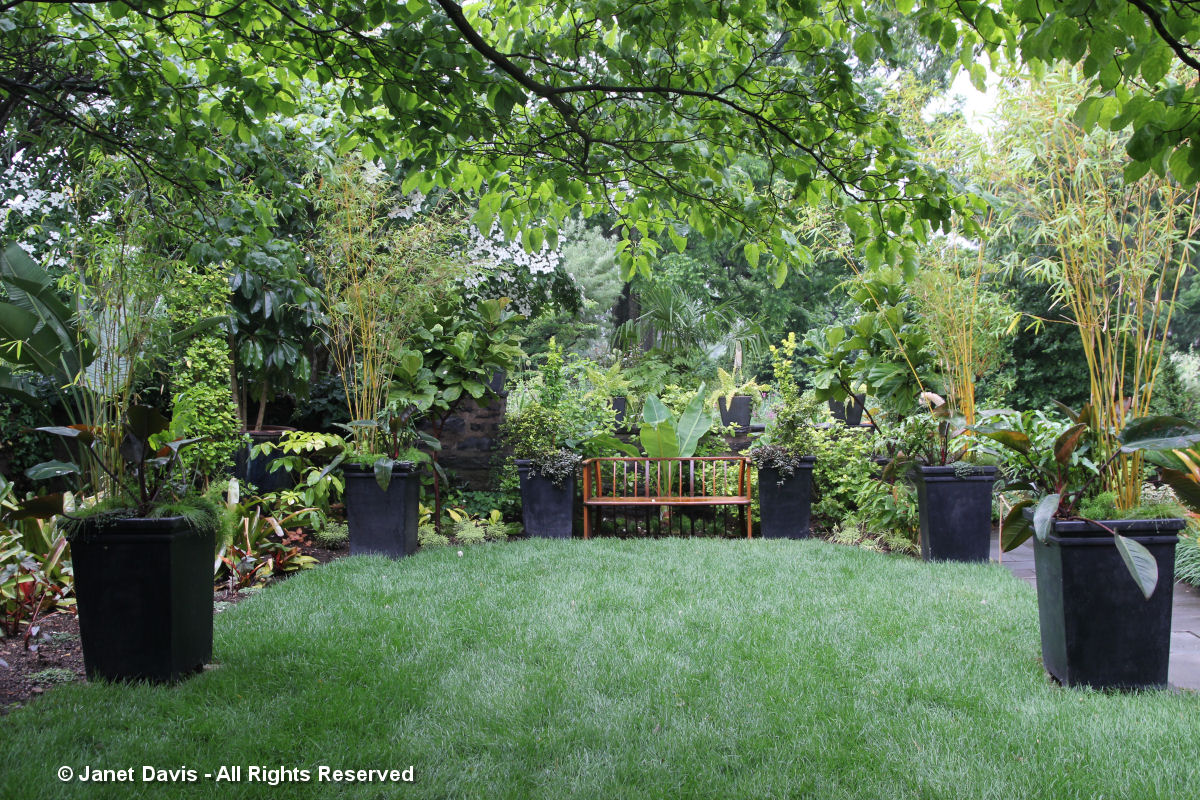
WOW…the word drama is perfect. I love the black and gold leaves together. I haven’t thought of that combination and it is stunning. I am saving this post! So much inspiration!!!
Thanks, Laurin! In your hands, black will be very beautiful!
Laurin, thank you for sharing this! These shots are stunning!!! The color black seems to make things more dramatic.